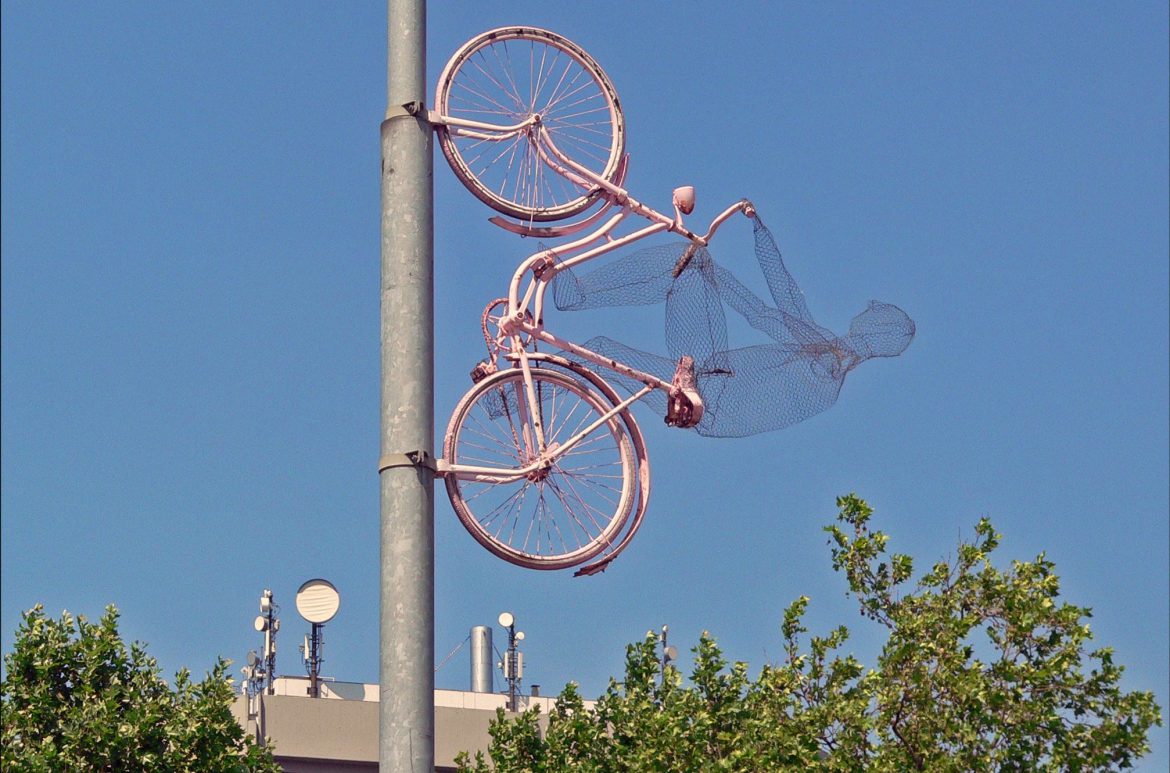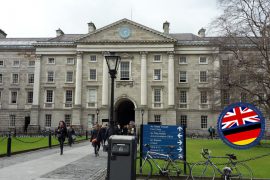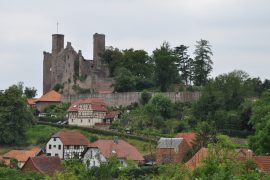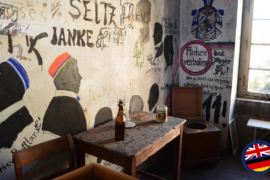The helmet sits firmly on my head. The straps are tightly fastened under my chin. My support wheels are gone. It’s sometime in the mid 90’s and my five-years-old self is about to ride its first unaided meters on a bicycle (and, let’s be honest, she is also about to have her first bike accident). Now, nearly 20 years later, my bike is a substantial part of my daily life – not least thanks to me living in Göttingen. What I have forgotten though over the years, while edging my way through the local bicycle avalanches, is that there are students in Göttingen who don’t know how to ride a bike.
“It’s scary that there are also people walking around”, Paola admits. On a warm Friday afternoon, I’m visiting the InDiGU Cycling Course at the University Sports Center. The group is about to leave the practice grounds and head for a short bike trip around the University Sports Center, which is full of obstacles and pedestrians. Until now, Paola had never had the need to ride a bicycle: although she grew up in a big city, her school, the university, bars were always within a walking distance. Now that she is doing her Master’s in Göttingen, she realised that riding a bike can come in really handy.
The course participants come from all over the world. Most of them, like Paola, lived in a metropolis where you wouldn’t waste a thought on learning to ride a bike (and thus risking your life) or where you just wouldn’t need one to get from A to B. In some other cases, female participants were just not allowed to ride a bike in their country of origin.
Yasaman has lived in Göttingen since April. Even though she learnt riding a bike when she was a little kid, years and years without any training lead to her being out of practice. From the day she visited Göttingen for the first time, the PhD student saw that it was time to get back up on the saddle: “It’s just very efficient to get to the University by bike.”
An international student gave the initial impulse for establishing the cycling courses in Göttingen: friends from university invited him to join a bike trip to a lake, but he had to decline the invitation since he did not know how to ride a bike. His case caught InDiGU’s attention. The first cycling course, at first financed with financial means from the Ideas Competition of the University of Göttingen, was offered in the summer semester of 2014. Nine courses have since then taken place. The demand is still high.
The cycling courses are nonetheless only a minor activity of the “Integration & Diversity at Göttingen University” programme. First and foremost, InDiGU is dedicated to the intercultural exchange between students through Study Buddy and Academic Writing partnerships. It also offers advanced training for students who consider an international career. All this is embedded in the “International Certificate” which focusses on intercultural training and sensitisation. Even volunteer work in international groups at Göttingen University can be part of the certificate.
The participants of the Cycling Course have other concerns right now. For them it’s all about keeping their balance. “Considering the fact that we have just started the second half of the course, they are doing pretty well”, says Regine Preuß from the ADFC (German Cyclist’s Association) while watching her pupils driving circles on the concrete field. Preuß scatters obstacles the participants are supposed to avoid or to drive over on the floor. The course started a couple of weeks ago with practice on scooters. “That way, the inhibition level is smaller”, Preuß explains. The shift to bicycles only happened in the second session. Today, it’s all about “refinement and confidence”. After that, it’s time to fasten the helmet: Göttingen has gained new cyclists!
Click here to get more information on the Cycling Courses, InDiGU or the International Certificate.








